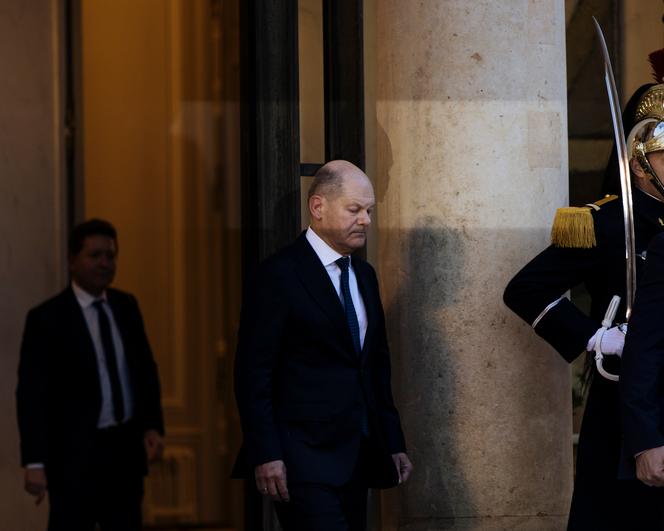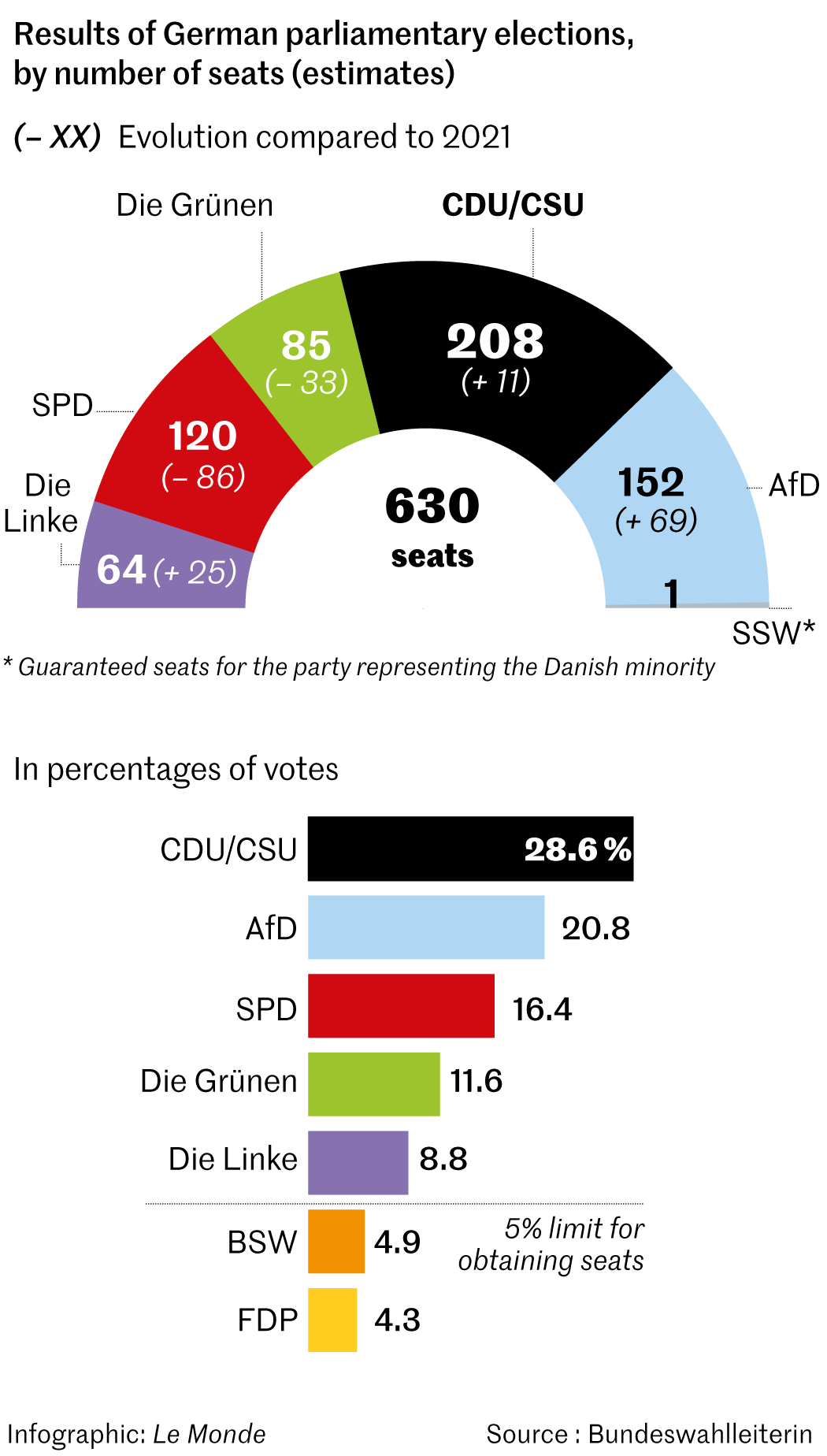


When the TV channels went silent at around 6:40 pm on Sunday, February 23, giving way to Chancellor Olaf Scholz's speech, the already discouraged atmosphere at the Willy-Brandt-Haus, headquarters of Germany's Social Democratic Party (SPD), became downright gloomy. The SPD, which got 16.4% of the vote, down 9 points from the 2021 elections, seemed drained of energy. The country's oldest party suffered its worst result since the post-war period.

In a hushed voice, Scholz took responsibility for the defeat, without officially announcing his expected resignation. He simply made it clear that he would not take part in coalition negotiations, which will inevitably involve his party. This is the paradox of the situation: The SPD, severely punished on Sunday for the policies it has pursued since December 2021, remains essential to forming a majority with Friedrich Merz's Christian Democratic Union, which came out on top with 28.6% of the vote.
You have 80.98% of this article left to read. The rest is for subscribers only.
